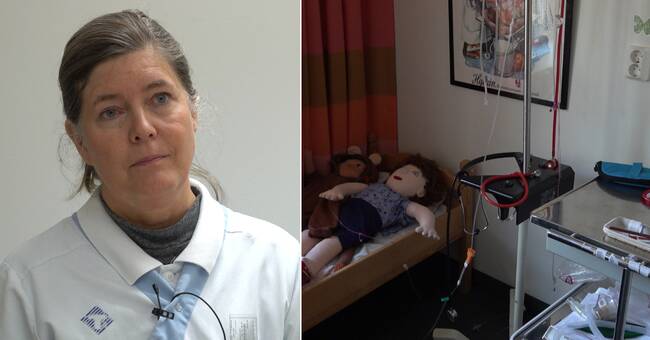RS virus, a respiratory syncytial virus, affects most people and often looks no worse than a runny nose.
But for young children who are exposed to the virus for the first time, they risk becoming seriously ill and, in the worst case, needing respiratory care.
Several cohorts
Every other year, the spread of the RS virus is usually extra large, last year it was expected to be such - but the spread of infection did not occur in principle entirely due to the coronary restrictions.
This means that there are now three cohorts of children who have not been exposed to the virus before and are now affected at the same time.
- We have not had RS since 2019, so the 1, 2 and 3-year-olds are quite unprotected and can get sick, says Deborah Frithiof.
"Praise to the people"
In order to slow down the spread of infection, the same conditions apply as for the corona pandemic, wash your hands, try to keep your distance and stay at home in case of symptoms, something the people of Västerbotten are good at according to the chief physician.
- I want to praise the population in Västerbotten who are generally much better at "babysitting" and keeping the children at home with a cold than those in southern Sweden.
We see it quite clearly, concludes Deborah Frithiof.

